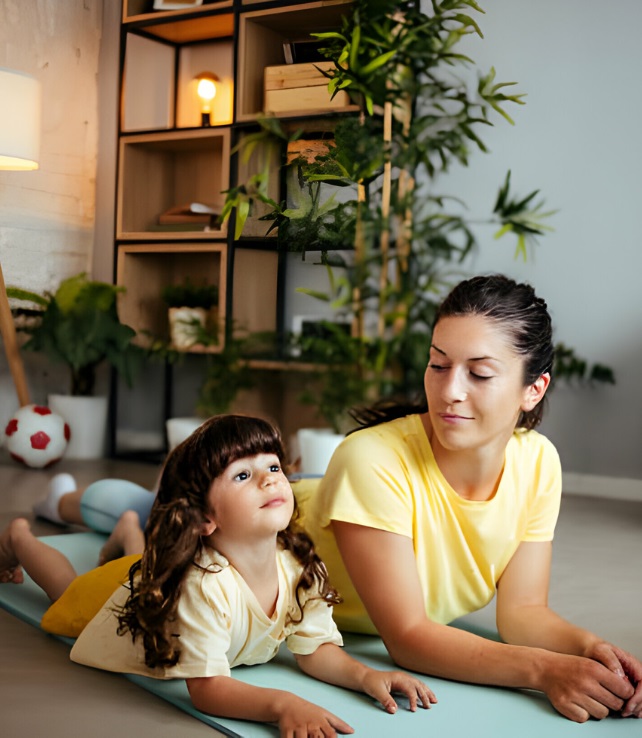Self-care for parents often conjures images of brief, isolated moments of relaxation, such as a quiet bubble bath or a solitary cup of coffee in the early morning hours. While these moments are valuable, true self-care encompasses much more, especially for parents who navigate the relentless demands of caregiving, work, and personal interests. This article delves into a comprehensive approach to self-care that transcends traditional notions, offering parents strategies to nourish their well-being beyond the bubble bath.

Self-Care
Self-care is the practice of taking action to preserve or improve one’s health. It is a multidimensional process that includes physical, emotional, mental, and spiritual well-being. For parents, self-care is not just about finding temporary escapes from the stress of parenting but about integrating practices into daily life that sustain energy, health, and emotional resilience.
Physical Self-Care
Physical self-care involves activities that improve physical health and well-being. For parents, this can mean ensuring adequate nutrition, exercise, and sleep—foundations of good health that are often neglected in the hustle of family life.
Nutrition: Meal planning and prep can ensure that healthy options are always available, even on the busiest days. Involving children in meal preparation can also serve as a bonding activity and teach them the importance of nutrition.
Exercise: Finding time to exercise can be challenging for parents. Incorporating physical activity into family routines, such as after-dinner walks or weekend hikes, can make exercise a shared activity rather than a solitary obligation.
Sleep: Quality sleep is crucial but often elusive for parents, especially those with young children. Establishing a consistent nighttime routine, limiting screen time before bed, and creating a comfortable sleep environment can improve sleep quality.
Emotional and Mental Self-Care
Emotional and mental self-care are about finding ways to process and express feelings, reduce stress, and maintain a healthy inner dialogue.
Mindfulness and Meditation: Practicing mindfulness or meditation can help parents stay present and reduce stress. Even a few minutes a day can make a significant difference in emotional well-being.
Journaling: Writing down thoughts and feelings can be a therapeutic way to process emotions and reduce stress. It can also serve as a tool for self-reflection and personal growth.
Seeking Support: Building a support network of friends, family, or fellow parents can provide an outlet for sharing challenges and successes. Professional help from a therapist or counselor can also be beneficial, especially during particularly stressful times.
Intellectual Self-Care
Intellectual self-care involves engaging in activities that stimulate the mind and expand knowledge and skills. For parents, finding time for personal interests and intellectual growth can be a vital part of self-care.
Reading: Setting aside time to read, whether for pleasure or personal development, can provide a meaningful escape and stimulate intellectual growth.
Hobbies: Pursuing hobbies or interests can offer a sense of accomplishment and joy outside of parenting responsibilities. Even activities that can be done in short bursts, like gardening, crafting, or playing a musical instrument, can enrich a parent’s life.
Learning: Taking a class, attending a workshop, or simply learning something new online can stimulate the mind and provide a sense of personal achievement.
Spiritual Self-Care
Spiritual self-care may involve practices that connect a person to a higher purpose or bring a sense of peace and grounding. This can vary widely among individuals, depending on personal beliefs and interests.
Nature: Spending time in nature can have a grounding effect, reducing stress and enhancing a sense of well-being.
Meditation or Prayer: For some, meditation or prayer can be powerful tools for spiritual self-care, offering a sense of connection to something greater and fostering inner peace.
Gratitude Practices: Regularly practicing gratitude, such as keeping a gratitude journal or sharing what you’re grateful for with family members, can shift focus from life’s challenges to its blessings, fostering a positive mindset.

Integrating Self-Care into Daily Life
The key to effective self-care for parents is integration rather than segregation. Self-care should not be viewed as an additional task on the to-do list but as an integral part of daily life. This can mean:
- Combining activities, such as exercise with family time.
- Setting realistic goals and expectations for what self-care looks like.
- Prioritizing activities that offer the most benefit to your well-being.
- Being flexible and forgiving with oneself when plans go awry.
Conclusion
Self-care for parents is essential, complex, and multifaceted. It goes beyond temporary escapes to encompass practices that nurture physical, emotional, mental, and spiritual well-being. By integrating self-care into the fabric of daily life, parents can enhance their well-being, setting a powerful example for their children and ensuring they have the energy and resilience to meet the demands of parenting. Remember, caring for yourself is not an act of selfishness but a necessity, allowing you to be the best parent you can be.


